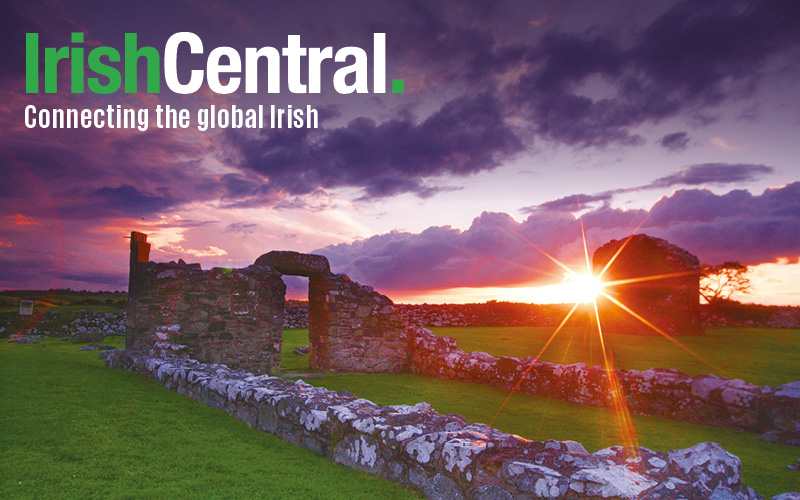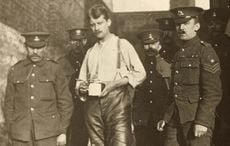| New Orleans' residents in the aftermath of Hurricane Katrina |
On Tuesday, August 23, 2005 a hurricane formed in the Bahamas and pushed its way toward the Gulf of Mexico. Very soon it became the third strongest hurricane ever to make landfall in the U.S.
Gaudy, glorious New Orleans was in its path. The levees there had been designed to withstand a Category 3 storm, but Hurricane Katrina, as it was called, was already being forecast as Category 4. It featured gusts of 140 miles an hour. Just the storm surge was a terrifying 20-feet high.
I bring this up because what happened next astonished me. As an Irish person I saw parallels then that have haunted me since. Despite everything that befell the U.S. in that uniquely disastrous decade, it’s still the first thing I think of when I think of the George W. Bush years.
We know the levees failed due to design flaws and lack of attention to their upkeep. When Katrina hit it caused $75 billion worth of physical damage, displacing more than one million Gulf Coast residents in 24 hours. Most of these refugees were already living below the poverty line when the storm struck.
Poor people who were predominantly black and who didn’t have the financial means to skip town were left behind to face it. Census data shows that more half of the poor households in New Orleans did not have a car, truck or van. They were blamed for not leaving, but they hadn’t the means to leave.
Twenty-eight percent of New Orleanians are poor (which is twice the national average) and 84% of them are black. The people who were the most exposed to the storm were the elderly. Seventy percent of the New Orleans area’s 53 nursing homes were not evacuated before the hurricane struck.
A day later 80% of New Orleans was submerged. Able bodied people climbed onto their roofs and waited for help that didn’t come. More than 70% of the people who died were over 60 years old.
There are other facts about that storm that, just like the events of the Irish Famine, are less well known or talked about today. The elderly in some nursing homes were reportedly abandoned by their caretakers as the water rose.
At St. Rita’s Nursing Home in the city a wall of water engulfed the whole building, rising almost to the ceiling. Within 20 minutes nearly three dozen residents were drowning, some still in their beds.
The response (or rather, lack of response) to the disaster is well known. Federal and state officials were manifestly not prepared for the devastation Katrina wrought.
This was in the era of Bush’s daily color-coded terror alerts, remember. The administration was so fixated on stopping attacks from abroad that it appeared to undermine their response to disasters at home.
I’m not making that claim up, by the way. The Federal Emergency Management Agency (FEMA) had been incorporated into the Department of Homeland Security under the GOP, which then cut FEMA’s funding and authority and turned its focus instead toward foreign terrorism.
They had had their hands tied. They admitted themselves they had not been prepared for it.
With the absence of the authorities on the streets all order broke down rapidly, with predictable and horrifying results.
Highways and roads were closed. Tens of thousands waiting pointlessly for help in the Superdome began to despair. Food and water became scarce.
Police officers quit. Some even committed suicide, unable to contend with the complete breakdown of law and order.
The first water that had flowed into New Orleans had been clear ocean water from the storm surges but it turned black and putrid from raw sewage and all the dead bodies. People reportedly began to develop rashes on their legs just from standing in it.
A hurricane is an act of God, but how we respond to one isn’t. Who we are depends a lot on what we do (and don’t do). It’s an inescapable law of life.
It means much more than just what we work at or what kind of salary we make for it. It means what kind of person we are, how we reach out to each other, or how we refuse to reach out.
If we lament the way the government inaction during the Irish Famine condemned our ancestors to starvation or forced migration, and we really should, then we’ll have a job to explain why we haven’t done the same with Hurricane Katrina. We should commemorate it and its lessons too.




Comments